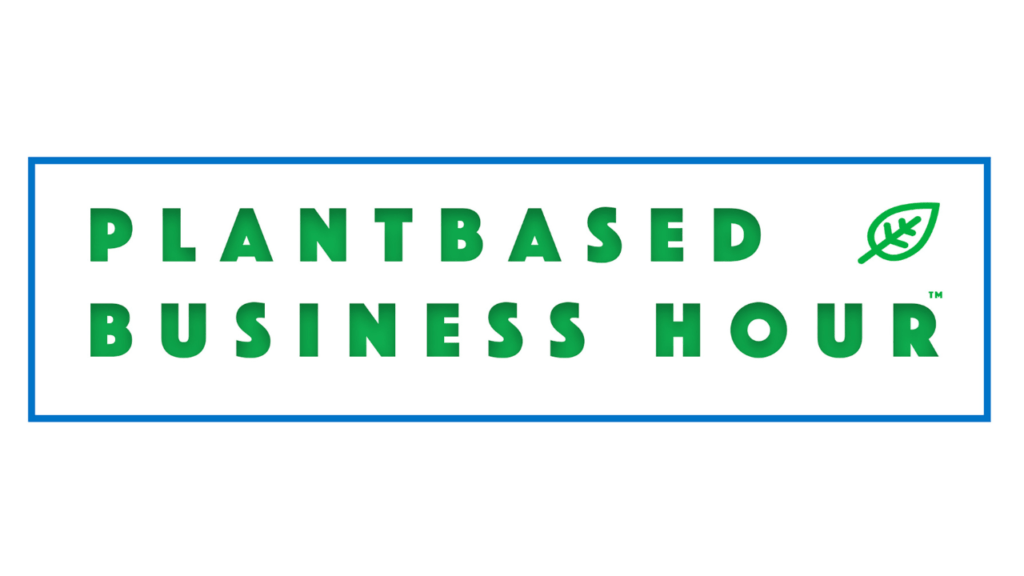
Sharyn Murray, Investment Engagement Manager at the Good Food Institute, discusses how ESG frameworks can assist plant-based businesses in communicating their positive impact data to the outside world.
It’s a tactical knowledge drop today on the Plantbased Business Hour.
Specifically we discuss,
- What are the ESG frameworks exactly and what have GFI and FAIRR set out to do with the frameworks? Why does the sector need ESG reporting?
- Who does the framework serve/benefit?
- Is employing the framework an offensive move for companies or a defensive move?
- How hard are the ESG frameworks to employ? How long do they take to implement and how expensive are they to implement?
Here is short clip and transcript from our long-form conversation. Sharyn can be reached on LinkedIn and you can learn more about GFI’s ESG reporting here.
Elysabeth: This might seem like a burden to some smaller companies, and they might think, “Ah, why do I really have to do this?”
Pressure is coming. So, we are going through the global food systems transformation and the reason that is because our current global food supply system is showing its stress cracks. It’s susceptible to pandemics, it uses too much land and water, it emits too many emissions and it uses natural resources poorly and inefficiently such that we’re going to have trouble feeding a growing population. If you can’t feed people, you’re talking about wars and political instability. It just grows from there.
So, to respond to that you’re seeing pressure from investors; you’re seeing pressure, as Sharyn said, from the Securities and Exchange Commission wanting to focus on people’s supply chains and Scopes 1, 2, and 3 to push them to enact better practices. This isn’t really going to be optional I don’t believe, in, I’ll say short order by 2025. Would you like to venture anything there? Could you respond to its optionality versus necessity in the near future?
Sharyn Murray: Yeah, so the SEC has a sustainability reporting draft out. They received a lot of comments on this, and we’ll see what they do. I hesitate to predict the future with respect to U.S. regulation. In Europe it seems a lot more certain. So, there are various regulations with respect to funds. Funds have to meet certain requirements to call themselves ESG impact funds. There’s an article eight and article nine concept. There’s the green taxonomy which industries fit into this. This is still all being developed but some of it is already enacted and is continued to be worked on. So, this is more certain, and this impacts multinational companies, so even if they have a U.S. headquarter and they operate to a certain revenue requirement or revenues in Europe, they will be impacted by this.
These are all really important. Companies are going to have to do this, and investors and others care and it’s important for our future. On the kind of carrot side of it, this could help companies reduce their cost of capital. We’ve seen things like green bonds in Europe, in particular, but globally these are bonds that companies are raising for sustainability-oriented projects. That interest rate is lower than it would be otherwise and so we can apply that concept to equity as well. Companies that can show these positive ESG characteristics are probably going to have more demand by investors, right, because we have these impact ESG investors. They actually have a lot of capital to put to work.
Pitchbook has something out, I have to look at the precise number, but something over 100 billion dollars that impact funds have to be put to work as of last September when we published these frameworks. So, when you have more demand for your round, you’re going to raise either a higher valuation or you’re going to have more money you can raise. It’s going to reduce that cost of capital.
So, we talk about the expense that companies need to expend to report on this data. The hope is that they get a whole lot more back even just from a financial perspective for doing so.
Elysabeth: Right, as well from a marketing perspective. They’re going to have those positive stats to show in front of the pack and they’re going to be more competitive in that grocery store aisle and that, too, is going to bring more capital. And that’s going to bring more distribution possibilities because when you, as a product, have better environmental, social or governance statistics, well then that grocery store wants to carry you because you make their numbers look better. Everyone is looking to make their sustainability numbers better and so when you are out in front with good numbers, you are out in front and there’s so much equity to being first.
So, I’m so thrilled that FAIRR and GFI have worked together to put these frameworks out there as tools so that plant-based innovation and alternative protein companies can start to gather that data and report their statistics because I think it’s going to be very meaningful for the sector as a whole.

New episodes are out every week. Never miss the Plantbased Business Hour or Minute. Subscribe on iTunes and Youtube, and sign up for the newsletter. Follow Elysabeth on Linkedin. For information on Plant Powered Consulting, click here.



